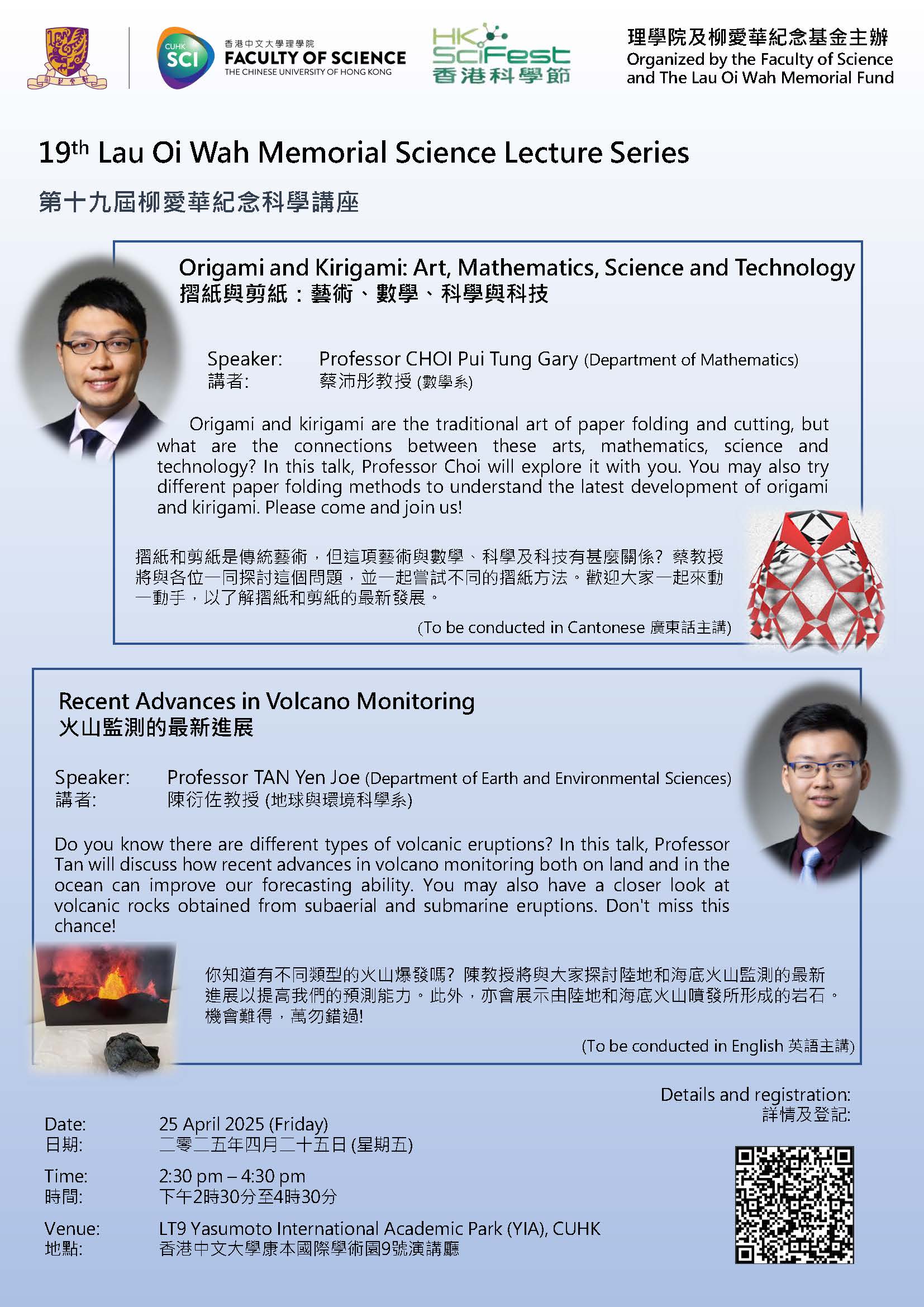- Home
- /
- Science For Youth
- /
- Lau Oi Wah Memorial Science Lecture Series
- /
- Latest Event
Latest Event
In memory of the late Professor Lau Oi Wah, a Professor in the Department of Chemistry and our former Dean of Science, for her life-long devotion of promoting science education in the University and secondary schools, the Faculty has been hosting an annual Lau Oi Wah Memorial Science Lecture Series since 2005 to extend Professor Lau’s vision of science education.
The 19th Lau Oi Wah Memorial Science Lecture Series
| Date | 25 April 2025 (Friday) |
| Time | 2:30 pm – 4:30 pm |
| Venue: | LT9, Yasumoto International Academic Park, CUHK (Seats are limited; first come, first served) |
| Enquiries | 3943 1387 / cpse@cuhk.edu.hk |
Lecture Series Topics
| First Talk |
Origami and Kirigami: Art, Mathematics, Science and Technology Professor CHOI Pui Tung Gary (Department of Mathematics) Origami and kirigami are the traditional art of paper folding and cutting, but what are the connections between these arts, mathematics, science and technology? In this talk, Professor Choi will explore it with you. You may also try different paper folding methods to understand the latest development of origami and kirigami. Please come and join us! (to be conducted in Cantonese) |
| Second Talk |
Recent Advances in Volcano Monitoring Professor TAN Yen Joe (Department of Earth and Environmental Sciences) Do you know there are different types of volcanic eruptions? In this talk, Professor Tan will discuss how recent advances in volcano monitoring both on land and in the ocean can improve our forecasting ability. You may also have a closer look at volcanic rocks obtained from subaerial and submarine eruptions. Don’t miss this chance! (To be conducted in English) |


